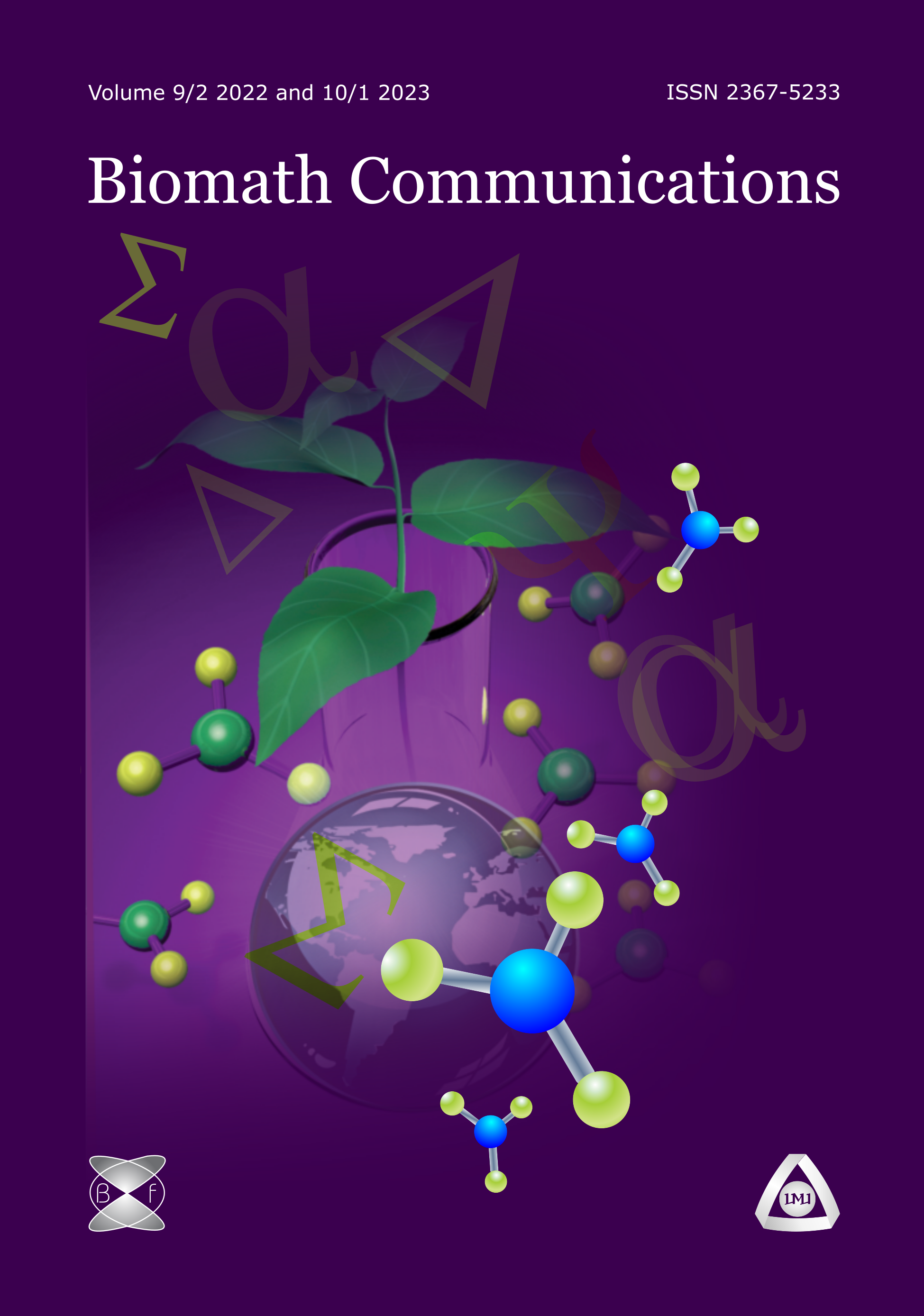Travelling Wave Solution and Recurrent Algorithm for the Nonlinear Age-Structured Model of Polycyclic Population Dynamics
DOI:
https://doi.org/10.11145/419Abstract
This work is devoted to the study of evolutionary dynamics of polycyclic age-structured one-sex population. It extends previousВ work on polycyclic population including the effect of nonlinear mortality (population growth feedback) and proliferation. Further, the population is assumed to have two types of individuals, proliferating and quiescent. The resulting mathematical model is based on the systems of initial-boundary value problems for the non-linear transport equation with integral boundary condition. This model describes both the temporal and age evolution of the density of the proliferating and quiescent subpopulations.В ВUsing the method of characteristics and some modification of the steps method we derive a multistep recurrent algorithm which produces explicit travelling wave solutions. The compatibility conditions impose the restrictions on the model parameters and guarantee continuity and continuously differentiable of obtained solution. The explicit form of this solution is used to create the accurate recurrent numerical algorithm and carry out the series of numerical experiments with a set of parameterized algebraic functions. We study the asymptotical behavior of numerical solutions for the periodically oscillating functions of model parameters and obtained the quasi-periodical regimes of population dynamics in the form of harmonic oscillations and pulse sequence in the series of experiments.
Downloads
Published
Issue
Section
License
The journal Biomath Communications is an open access journal. All published articles are immeditely available online and the respective DOI link activated. All articles can be access for free and no reader registration of any sort is required. No fees are charged to authors for article submission or processing. Online publications are funded through volunteer work, donations and grants.
Authors who publish with this journal agree to the following terms:
- Authors retain copyright and grant the journal right of first publication with the work simultaneously licensed under a Creative Commons Attribution License 4.0 that allows others to share the work with an acknowledgement of the work's authorship and initial publication in this journal.
- Authors are able to enter into separate, additional contractual arrangements for the non-exclusive distribution of the journal's published version of the work (e.g., post it to an institutional repository or publish it in a book), with an acknowledgement of its initial publication in this journal.
- Authors are permitted and encouraged to post their work online (e.g., in institutional repositories or on their website) prior to and during the submission process, as it can lead to productive exchanges, as well as earlier and greater citation of published work (See The Effect of Open Access).

